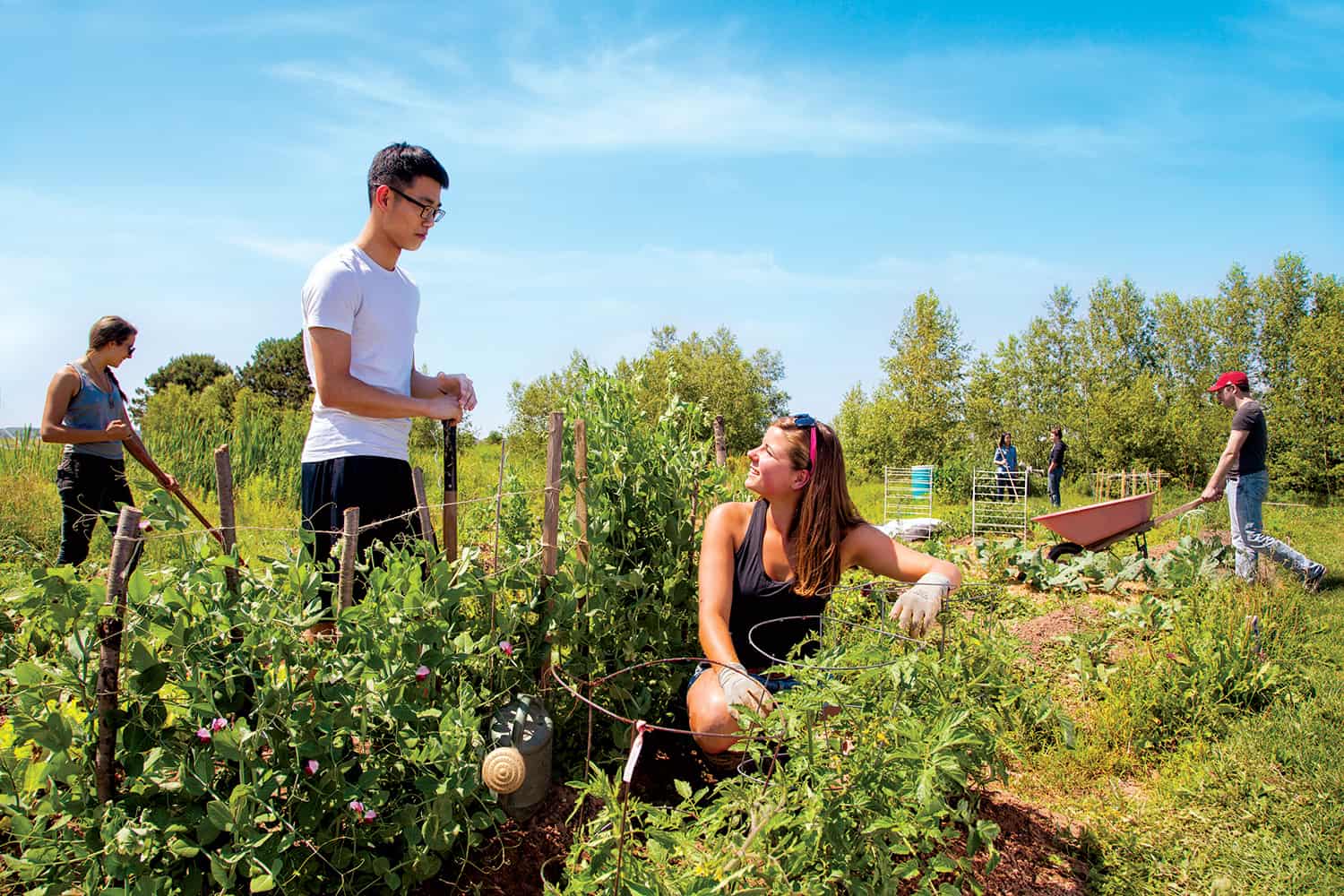
On July 27th, from 6:30 to 8:00 pm, Samuel Jean, Harriet Irving Botanical Gardens Conservation and Education Technician will be leading a garden biodiversity workshop at the Acadia Community Farm with the help of Kathrynn Ashworth, Acadia Community Farm Coordinator, and Rachel Whiteside, Farm Outreach & Education Coordinator.
Workshop participants will be introduced to edible plants that are native to Wapna’ki (the Acadian Forest Region), and some of the invasive plants threatening them. Tips for creating food gardens that help support pollinators and other animal species will also be provided.
The workshop will give participants an opportunity to get their hands dirty by helping to remove yellow iris (Iris pseudacorus), an invasive species from the Farm, and plant two native species, harlequin blue flag (Iris versicolor) and swamp milkweed (Asclepias incarnata.) Swamp milkweed is an essential host plant for the monarch butterfly. Monarchs are a ‘Species at Risk’ in Nova Scotia listed as endangered (facing imminent extirpation or extinction.) Planting swamp milkweed creates breeding habitat for these spectacular butterflies.
The Acadia Community Farm is a half-acre experimental and educational garden started in 2008 by Acadia students, and is now under the direction of the Acadia Sustainability Office. Organic produce is grown and harvested by students and community volunteers for the Acadia Dining Hall and the local food bank. The Acadia Farm also serves as the Town of Wolfville Community Garden and as a field laboratory for teaching and research at Acadia.
“The Acadia Community Farm, the Acadia Sustainability Office and the Harriet Irving Botanical Gardens often collaborate on campus educational programming and we are pleased to have Sam at the farm to share his expertise with our gardening community”, said Jodie Noiles, Acadia Sustainability Coordinator and Director of the Farm.
To register to this free event, send an email to farm.coordinator@acadiau.ca. Rain date is July 28th.


 Acadia University
Acadia University